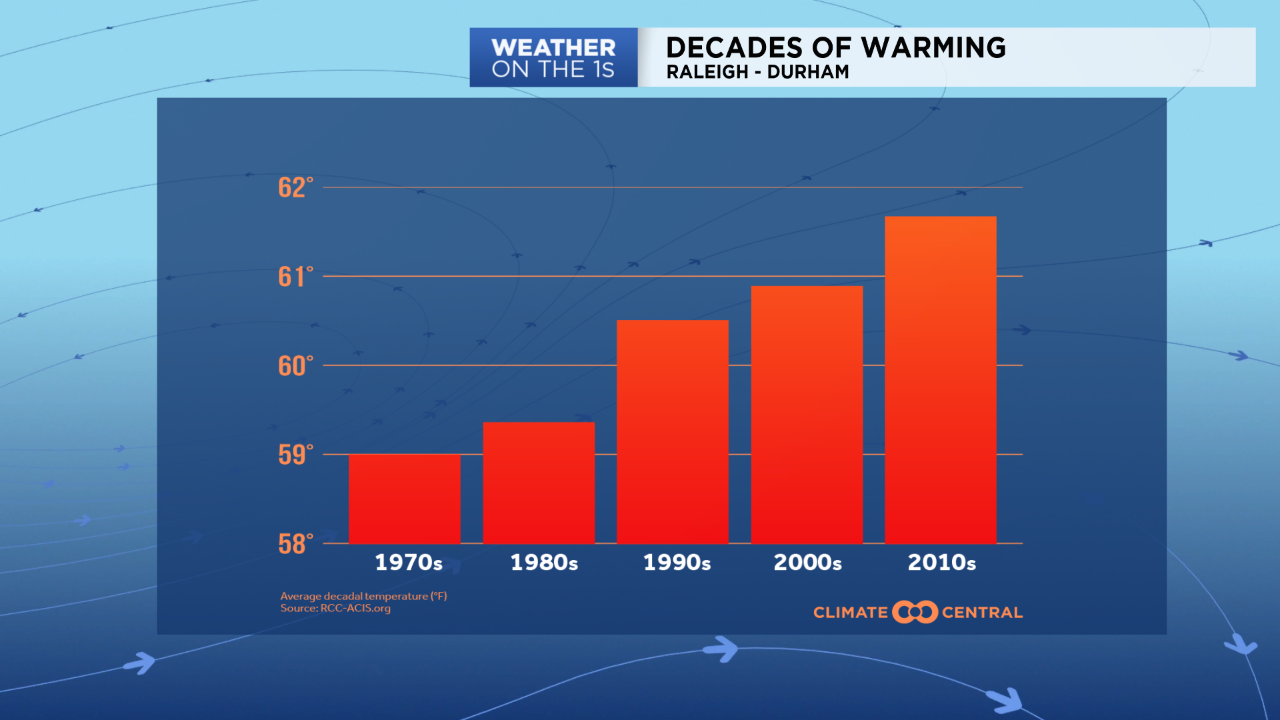The final numbers are in from last year. 2019 was the warmest year on record for North Carolina, according to data from National Oceanic and Atmospheric Administration's National Centers for Environmental Information that dates back to 1895.
Well above average temperatures in late December helped push last year into the top spot in the list of warmest years.
March and November were the only months that ended up below average. May, September, and October were all in the top 5 warmest for each individual month.
The five warmest years on record for the state are now 2019, 1990, 2017, 2016, and 1998.
The last time the state had one of the 30 coldest years on record was 1988.
- Warming Climate Means More Variability in North Carolina's Winter Weather
- Are Hurricanes Becoming More Intense?
- 12 Record Highs and No Record Lows for the Triangle in 2019
2019 also ended the warmest decade on record for the region. Each decade since the 1970s has been getting warmer.

While there is some natural variability in our weather changes from year to year, there is overwhelming evidence that our climate not only in North Carolina but around country and around the world is warming at an unprecendedted rate. There is a 97% to 98% consensus among peer-reviewed climate scientists that the warming climate is caused by humans through the emission of greenhouse gases like carbon dioxide.
While warmer days in the winter may seem like good news to some, a warming climate is cause for concern. More extreme heat in future decades is expected to have greater health impacts here in North Carolina. Climate research has also shown that the warming climate will lead to more intense hurricanes that combined with a rising sea level could reshape the state's coastline. Hurricanes are also expected to produce heavier rain leading to more devastating flooding.
Follow Meteorologist Lee Ringer on Facebook, Twitter, and Instagram.




